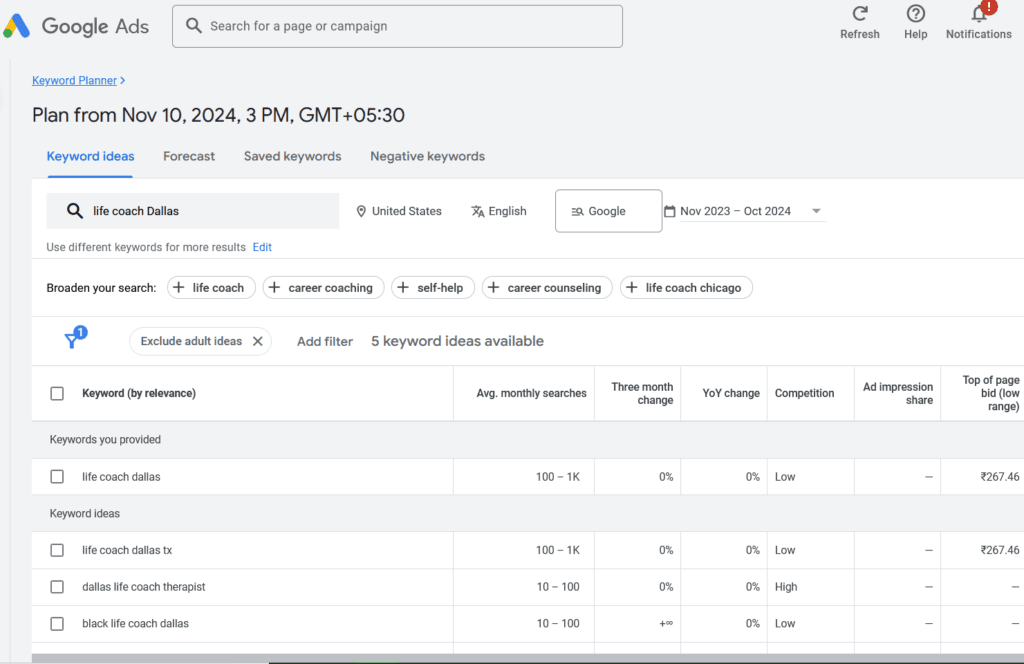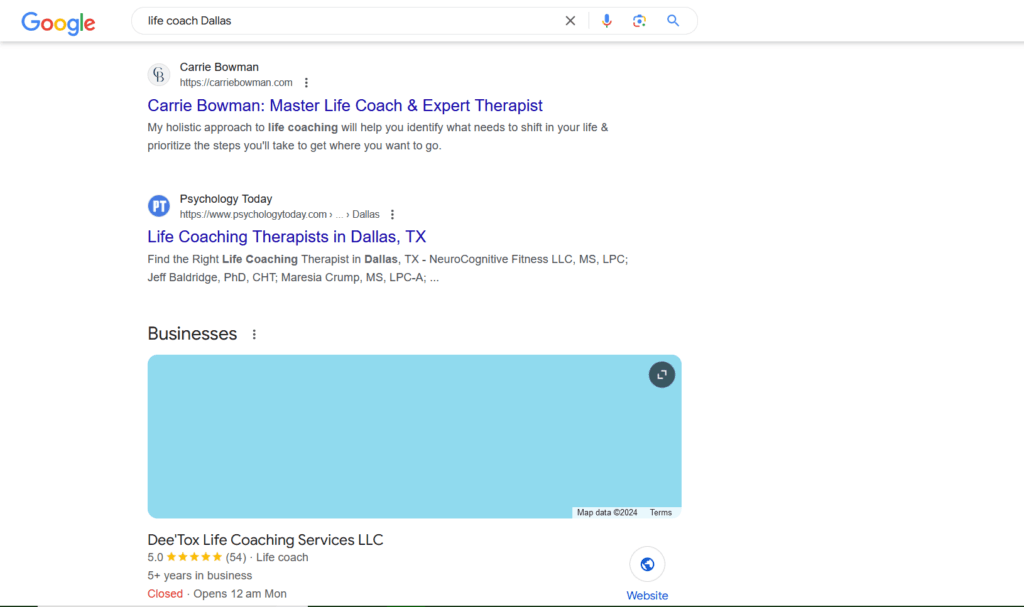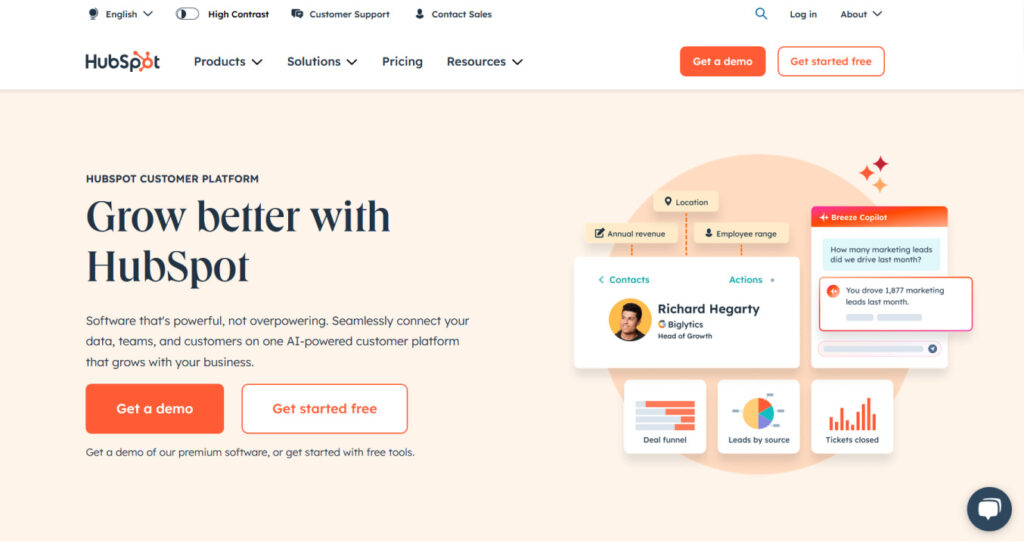You have a great product. You have competitive prices. And you really care about your customers. There’s just one problem: they don’t know you exist.
And if they can’t find you, they can’t buy from you.
This is the challenge most small businesses face. They deserve more sales, but without strong marketing, they struggle to find customers consistently.
Think about it—people only discover how good your product is after they’ve bought it. If it’s truly great, they’ll come back and tell others about it. So, a good product or service is simply a customer retention tool.
Before you think about retaining customers, you’ve got to acquire them first. That’s where SEO comes in.
SEO is a powerful way to market your business. It helps you reach your ideal customers, send them compelling messages, and encourage them to do business with you. No surprise that 69% of companies actively invest in SEO.
In this post, we’ll explore the benefits of SEO for small businesses and how you can use it to take your business to the next level (without burning money).
What is SEO: A Beginner’s Guide
Search engine optimization (SEO) is a type of digital marketing that helps you increase your website visibility on search engines like Google and Bing.
And Google is the big player here—processing over 8.5 billion searches every day, or about 5.9 million searches per minute. Among these searchers exist your ideal buyers looking for products and services just like yours.
So, if you can get your website to rank on the first page for the right search terms (or keywords), you gain organic traffic to your website, and your business becomes visible to people who are actively searching for what you offer.
For instance, let’s say you’re a life coach based in Dallas, Texas, and want a consistent flow of clients. You find that “life coach Dallas” gets about 500 searches per month. Those searchers are starving prospects who are ready to work with someone just like you.


So, if you could get your website ranked on the first page of Google for that keyword, your ideal clients would find you right when they need your services. This way, you can have a steady stream of potential clients and grow your small business online.


Now, to optimize your website for SEO, there are some strategic steps you can take. We’ll get into those later, but first, let’s dive into the advantages of search engine optimization for small businesses.
7 Remarkable Benefits of SEO for Small Businesses
SEO is one of the best ways to grow your small business on a budget. Before you start working on it, let’s understand how it can truly benefit your business:
1. Connect with Your Target Audience
With 49% of US online shoppers starting their product search on a search engine like Google, SEO is a great way to get in front of the right people.
SEO helps you target specific people who are interested in your business. It lets your business appear on search engines when users are researching topics, comparing different options, or looking for the type of product or service you offer.
You just have to create content that answers the questions of your audience and provides a solution to their problems. Since you understand them and try to make their lives better, you build a genuine connection with them. This helps you attract new customers.
2. Reach Local Customers
With 46% of searches having local intent, local SEO helps you reach people in your city or nearby location.
It lets you appear at the top of search engine results when nearby prospects search for products or services you offer. This boosts visibility, inquiries, and foot traffic (if you have a physical location).
For instance, if you provide tree services in Orlando, listing your company on Google My Business and using local SEO tactics will improve your ranking for searches like “tree trimming Orlando” or “tree removal Orlando.”
88% of people who make a local search on their smartphone visit a related store within a week. So, no matter how small your company is, this benefit of SEO for small businesses gives you a great opportunity to find nearby customers.


3. Increase Brand Awareness
With 53% of overall website traffic coming from SEO, SEO helps small businesses promote their offer and increase their brand awareness.
For example, if you sell digital marketing courses, ranking for keywords like “digital marketing guide for beginners,” “best digital marketing strategies,” “best digital marketing courses for beginners,” etc. helps you promote your business to interested people.
Frequent appearances in search results create familiarity. This leads to a cognitive phenomenon called the familiarity effect, which says we humans favor familiar things over unfamiliar things.
So, even if visitors don’t buy your product right away, seeing your name often keeps you at the top of your mind. This increases the chance they’ll choose you (and not your competitors) when they’re ready to purchase.
4. Gain Trust by Sharing Your Knowledge
Creating SEO-focused blog posts is a powerful way to build trust with your audience. When you share valuable tips, strategies, guides, or data, people begin to see you as knowledgeable. You appear as someone who knows your thing and can be relied upon.
Besides, higher rankings make your business more credible. This increases the chance that buyers will choose your business when they need your product or service.
There are some epic long-term benefits of content marketing. A study found that businesses that use digital content marketing (like blogs) and satisfy customer values enjoy more customer loyalty.
Blog posts on a website tell a lot about the company. That’s why whenever I consider doing business with a company, I often check their blog. High-quality, well-structured, and insightful blog posts show the company’s attention to detail and high standards.
5. Build Authority in Your Industry
When you consistently publish content on a topic, your website gains authority on that topic. This not only makes you a trusted, go-to resource on the topic but also boosts your website ranking on Google.
This benefit of SEO for small businesses creates a snowball effect. More people turn to your site, and you become recognized as an expert in your industry. In time, this authority leads to opportunities like interviews, podcast appearances, or speaking invitations, which further strengthen your authority.
Take James Clear as an example. By consistently publishing high-quality blog posts on self-improvement topics, he built an audience of over a million monthly readers. He is the author of the #1 New York Times bestseller Atomic Habits, which has sold more than 20 million copies worldwide. Today, he’s seen as a thought leader on topics like habit-building, decision-making, productivity, and focus.


6. Get Consistent Traffic (Unlike Social Media)
One of the best benefits of SEO for small businesses is that it brings consistent organic traffic to your website. Each of your blog posts and product pages is an asset to your business because they attract thousands of visitors (and leads) month after month.
On platforms like Instagram or LinkedIn, your post brings quick spikes of attention. But as it gets old, its impact fades away, and nobody sees it. No matter how creative or compelling, social media posts are short-lived.
With SEO, it’s the opposite. When you create a high-quality, original post optimized for SEO, it might not attract traffic immediately. But once it starts ranking for your target keywords, it can bring consistent monthly traffic. You might only need to update it occasionally to keep it relevant.
No surprise, 49% of marketers say organic search brings in the highest ROI among all the digital marketing channels.
On this website, I have posts I wrote three years ago that still rank on the first page of Google, driving steady organic traffic. Whether I’m working, sleeping, or on vacation, my website keeps promoting my business. That’s the power of SEO.


7. Increase Conversions
Now, this is an obvious benefit of SEO for small businesses. Since SEO helps you target people who are genuinely interested in your business, you get high conversions.
For example, if someone searches for a specific product on Google and finds your website offering the same product, chances are higher that they would buy.
Similarly, if someone interested in your blog finds that they can get more such content directly delivered to their inbox, they are more likely to sign up for your email newsletter.
That’s how SEO attracts customers, and it’s really good at it. In fact, SEO gives an average conversion of 2.1% for B2C and 2.6% for B2B businesses, which is more than PPC ads, social ads, or webinars.
Unlike social media users who mostly scroll for entertainment, Google searchers are actively seeking solutions. They’re more targeted, engaged, and ready to pay for what you offer. That’s what makes SEO such a powerful conversion tool.
Is SEO Worth it for Small Businesses? A Few Challenges to Consider
SEO can be a powerful tool for small businesses, but it’s important to know some potential downsides. Here are four SEO challenges to keep in mind:
It Takes Time: There’s no overnight success with SEO. Google itself said it takes 4-12 months for SEO to work. This means you have to regularly write new content, update older posts and product pages, and make sure your website is SEO-friendly.
It’s Unpredictable: No one (except those who make the algorithm) knows the exact factors Google uses to rank websites. There are over 200 ranking factors at play. This means that even if you follow the best practices, there’s no guarantee you’ll land a top ranking.
It Requires Ongoing Effort: Even if you rank #1 on Google, you’ve to put efforts into maintaining that position, or your competitors will outrank you. Keeping your position means continuously updating your content with new information to stay relevant.
It Requires Expertise: To rank well on Google, your content needs to be original, helpful, and high-quality. This often requires subject matter expertise and a lot of research.
However, the long-term benefits of SEO outweigh these challenges, especially if you’re looking for a steady, consistent way to attract customers online.
How to Implement SEO for Your Small Business
You can take care of the above SEO challenges by just following the SEO best practices. Honestly, SEO isn’t as complicated as it might seem. Here are a few simple steps you can take to improve SEO for your small business:
Know Your Audience
This is one of the most overlooked aspects of SEO. Trying to be everything for everyone just doesn’t work. You need to specialize. Define your ideal audience and get to know them well.
Understanding your audience helps you choose the right keywords and topics to focus on. For example, if your small business offers career counseling, your audience might be people who are unsatisfied with their current jobs and are considering a career change.
Research Keywords
Once you know your audience, your goal is to answer their questions and solve their problems. To do that, first you’ve to find the terms they search for on Google. You can use a keyword research tool like Google Keyword Planner.
Try to find keywords related to your products or services. For example, if you sell career counseling services, you can target blog post keywords like:
- how to know when it’s time to change jobs
- career change at 30
- how to change career
And target product page keywords like:
- career counseling for working professionals
- career counselor for adults
- career change coach
In Ahrefs’ US database, 94.74% of all keywords have fewer than 10 searches per month. So, you should research well to target high-traffic keywords so that if your page ranks, you can get more organic traffic to your site.
Optimize Your Product Pages
The conversion happens in your product/service pages. So, make sure they are clear, compelling, and optimized with relevant keywords. Make a separate product page targeting each high-intent keyword we defined in the above step. Include elements like customer pain points, benefits, testimonials, high-quality images, and a good offer.


Write Value-Packed Blog Posts
Write well-researched, original, and engaging blog posts that provide value to your target customers. Do it consistently. 4–8 posts a month would be good.
Each post should focus on a specific topic or keyword (we already defined above) that your audience cares about. Use attention-grabbing headlines, write compelling introductions, break down your content using subheadings, include relevant images, and subtly promote your products and services.


Related: Habits that will make you an unstoppable writer
Make Your Website SEO-Friendly
Keyword optimization is one of the most effective SEO strategies. Whenever you create a product page or blog post, include keywords in your titles, meta descriptions, headers (H1, H2, H3), subheadings, URL, image alt-text, and throughout the content.
Here are some other key areas to focus on:
- Index your website: Use Google Search Console to ensure all your essential pages are indexed so that Google can find, crawl, and rank your site.
- Improve mobile responsiveness: Since 95.9% of global users access the internet via mobile phones, your site needs to look and function well on mobile devices.
- Improve loading speed: Test and optimize your website speed with tools like Google’s PageSpeed Insights.
- Use internal links: Connect relevant pages in your website with strategic anchor text so that users can easily navigate your site and find related pages.
- Improve navigation: Use a clear menu at the top and footer of your site so visitors can find important pages.
The goal is to improve user experience so that users can easily find what they need and show more engagement.
Ensure Your Website Has High EEAT
EEAT stands for Experience, Expertise, Authoritativeness, and Trustworthiness. While not a direct ranking factor, Google (as well as users) uses it to assess the quality and credibility of your website.
Here’s how you can boost your EEAT:
- Create quality content: Make sure it’s well-written, insightful, accurate, original, updated, and packed with value.
- Showcase expertise: Use your About Us page and author bios to highlight credentials and link to LinkedIn profiles.
- Feature achievements: Display any awards, recognitions, or certifications on your homepage and About page.
- Use social proof: Add testimonials, reviews, or case studies to your product and home pages.
- Include credible sources: Share your experiences and include links to reliable sources in your blog posts where relevant.
These steps can help improve your website’s credibility, which will ultimately boost your Google rankings.


Need Help with SEO for Your Small Business?
So, there are dozens of epic benefits of SEO for small businesses. SEO is one of the most effective ways to reach your target audience, give them your message, and encourage them to become your customers. But getting SEO right takes time, strategy, and expertise.
If you’re looking for an SEO expert who can help grow your business online, I’m here to help. In fact, I’ve helped dozens of businesses rank on Google, get high-intent traffic, and convert visitors into loyal customers.
With my experience in SEO content writing and content marketing, I can build a strategy that aligns with your goals and budget. Visit this page to learn more about my SEO services.
About the Author


Saurav Mandal
I’m a certified content marketer, SEO content writer, and copywriter with over 3.5 years of experience.
I’ve helped several startups and small businesses boost organic traffic, increase brand awareness, build authority, and improve conversions with compelling content and copy — something I take great pride in.
I also own this website, where I’ve been blogging since 2021, sharing everything I’ve learned about marketing and life (learning is what makes me happy).

